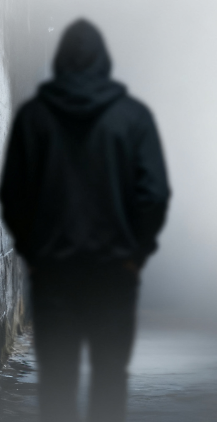
The evening of October 23rd was precisely like every other Thursday at 14 Maple Drive. Arthur Pendleton, a retired history teacher of 72 years, had finished his supper of meatloaf and mashed potatoes, washed his dish, and settled into his worn armchair to watch the evening news. The only deviation from his routine was the absence of his wife, Helen, who was visiting their daughter in another state. The house was silent, save for the dignified voice of the news anchor.
At precisely 8:05 PM, the doorbell rang.
This was, in itself, unusual. Arthur wasn’t expecting company. Peering through the peephole, he saw two young people—a man and a woman—dressed in crisp, dark uniforms. They looked official. The woman held a clipboard.
Cautiously, he opened the door a few inches. “Can I help you?”
“Good evening, sir,” the woman said with a professional smile. “We’re from the ‘City Water Safety Initiative.’ We’re conducting free, mandatory water quality tests on all homes in the neighborhood this evening. It will only take a moment. We just need access to your basement faucet.”
Arthur, a man who trusted the morning paper and little else, felt a twinge of suspicion. “Mandatory, you say? I didn’t receive any notice.”
“It was on the city’s website, sir,” the young man chimed in, his voice a little too eager. “We’re trying to get through the whole street tonight.”
Something felt off. The man’s eyes darted past Arthur, scanning the interior of the house. The woman’s smile was fixed, not quite reaching her eyes. But Arthur, a product of a generation that generally respected authority, felt the social pressure to be polite. Against his better judgment, he nodded.
“Alright. The basement door is just down the hall. Be quick about it.”
He led them to the basement stairs, flicked on the light, and watched as they descended. He remained at the top, listening to their footsteps on the concrete floor. He heard the faint sound of water running, then a muffled conversation. A minute passed. Then two.
The feeling of unease grew into a knot in his stomach. He was about to call down to them when his landline phone rang, startling him. He walked the few steps to the kitchen to answer it.
“Arthur? It’s Bill from next door.” His neighbor’s voice was tense, urgent. “Listen, I just saw two people go into your house. I saw a report on the local news an hour ago—there’s a pair of thieves hitting homes in our area. They pose as utility workers to case houses or distract homeowners. They work with a third person who comes in a back entrance. Are you alone?”
Arthur’s blood ran cold. Helen’s jewelry box. The small safe in the bedroom closet. He had left the back door unlocked when he took the trash out after dinner.
He didn’t hang up. Instead, he placed the receiver quietly on the counter, leaving the line open. His heart hammered against his ribs, but his mind, sharpened by decades of managing unruly classrooms, became crystal clear. He wasn’t a frail old man; he was a strategist.
He acted quickly and silently. First, he crept to the back door and turned the deadbolt, locking it. The click was soft but definitive. Next, he didn’t call 911. He opened a kitchen drawer and pulled out the heaviest object he could find—not a gun, but a solid metal flashlight. Then, he did something the intruders would never expect.
He walked to the top of the basement stairs and bellowed in his best teacher-voice, the one that could silence a room of teenagers, “Officers! I’ve secured the back entrance! They’re still in the basement!”
He then slammed the basement door shut and turned the old, sturdy lock. They were trapped.
From below, he heard a panicked shout and the sound of footsteps rushing up the stairs. The doorknob jiggled violently.
“Hey! Open the door!” the man’s voice shouted, now stripped of its false politeness.
Arthur ignored him. He picked up the phone again. “Bill, you still there?”
“I’m here, Arthur! What’s happening?”
“The rats are in the trap,” Arthur said, his voice steady. “Call the police. Tell them there are at least two, possibly three, suspects involved in the utility scam, and I have two of them contained in my basement.”
Within three minutes, the wail of sirens pierced the quiet neighborhood. Red and blue lights flashed through the front windows. Arthur unlocked the front door to meet the police, flashlight still in hand.
What happened next was a scene of beautiful, efficient chaos. The two “utility workers” were escorted from the basement in handcuffs, their faces masks of shock and fury. As they were being put into a squad car, a third individual—a lookout parked down the street—was apprehended trying to flee.
When the police searched the basement, they found the woman’s clipboard, which contained a crude map of the house and notes on potential valuables. The “water test” had been a ruse to get Arthur into the basement, leaving the back door unguarded for their accomplice.
The story made the local paper the next day: “Quick-Thinking Retiree Nabs Suspected Burglary Ring.” Arthur was hailed as a hero. But when reporters asked him how he stayed so calm, he simply smiled.
“It wasn’t about courage,” he told them. “It was about paying attention. They had a plan, but it was a bad one. They counted on me being scared and confused. I just decided to change the script.”
The incident left Arthur with more than a newfound notoriety. It reminded him that age had not diminished his ability to think on his feet. That night, he hadn’t been a victim found in suspicious circumstances; he had been the architect of the circumstance itself. And the most satisfying part? When Helen called, full of worry, he was able to reassure her with the simple truth: “Everything is fine, my dear. I just had to deal with some uninvited guests.”